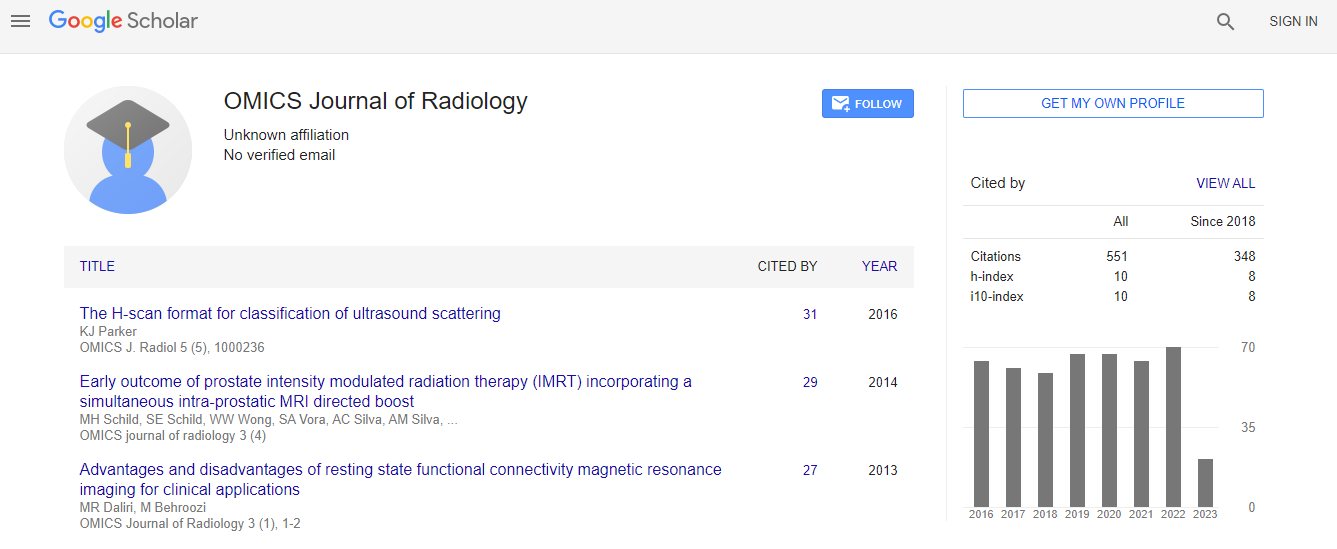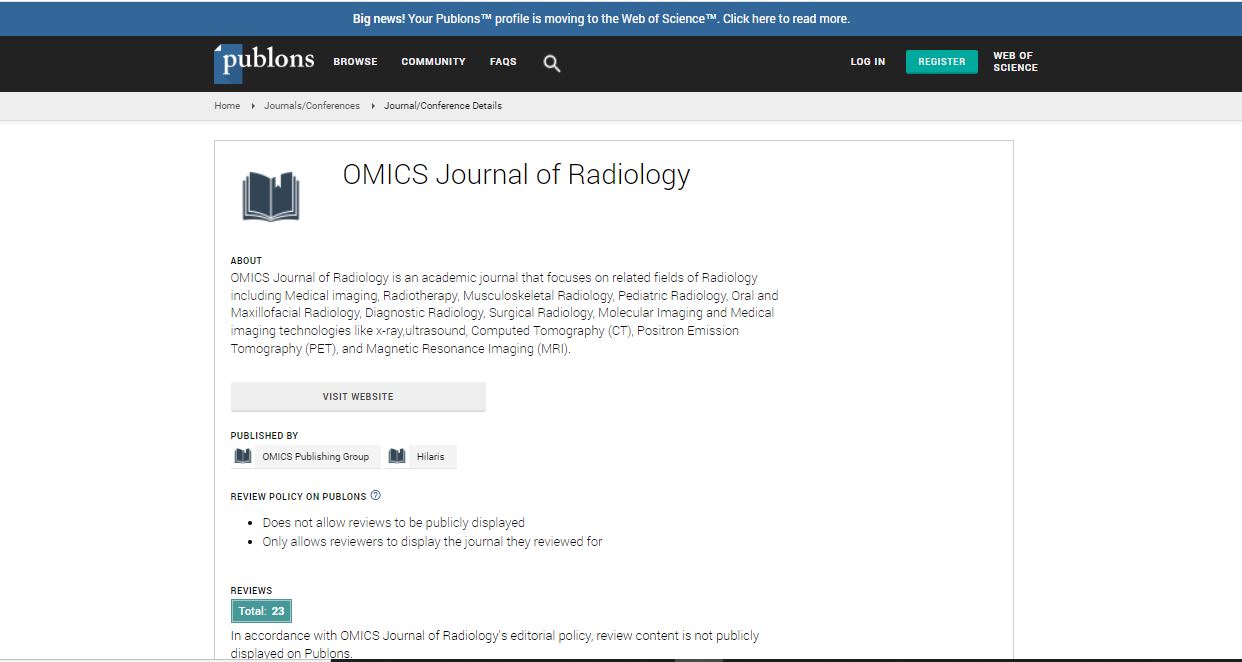Our Group organises 3000+ Global Conferenceseries Events every year across USA, Europe & Asia with support from 1000 more scientific Societies and Publishes 700+ Open Access Journals which contains over 50000 eminent personalities, reputed scientists as editorial board members.
Open Access Journals gaining more Readers and Citations
700 Journals and 15,000,000 Readers Each Journal is getting 25,000+ Readers
Google Scholar citation report
Citations : 551
Journal of Radiology received 551 citations as per Google Scholar report
Journal of Radiology peer review process verified at publons
Indexed In
- Index Copernicus
- Google Scholar
- Open J Gate
- Genamics JournalSeek
- ResearchBible
- Electronic Journals Library
- RefSeek
- Hamdard University
- EBSCO A-Z
- OCLC- WorldCat
- SWB online catalog
- Virtual Library of Biology (vifabio)
- Publons
- Geneva Foundation for Medical Education and Research
- ICMJE
Useful Links
Share This Page
Molecular imaging in the era of precision medicine
International Conference on Medical Imaging & Diagnosis
Jamal Zweit
Virginia Commonwealth University, USA
ScientificTracks Abstracts: OMICS J Radiol
Abstract
Precision medicine is an advanced procedure for disease treatment, prevention, diagnosis and, formulated around each individual��?s variability in genes, environment and life style, including nutrition. Precision medicine has made advances in diseases such as cancer, but the ultimate goal is to apply the approach to other diseases. With genomics, proteomics and molecular diagnostics, molecular imaging is well positioned to be a major driver of the precision medicine initiative. As a non-invasive tool, multi-modality molecular imaging excels at revealing quantitative information on the cellular and molecular pathways underpinning diseases on an individualized patient basis. Advancements in molecular imaging also provide new and specifi c ways to detect disease at early and potentially curable stages of disease. Molecular imaging can also identify which patients are likely to respond to certain therapies, from those less likely to respond. In this paradigm, molecular imaging has a huge role to play in accelerating and advancing the fi eld of precision medicine towards more cost-eff ective healthcare. Our multi-modality molecular imaging research addresses targeted imaging of both the tumor and the tumor microenvironment (TME) and its associated stroma. In this context, we are studying mechanisms of therapeutic intervention within a heterogeneous tumor and TME. A theranostic approach to cancer therapy, where live monitoring of treatment, is visualized by molecular PET imaging of anticancer drugs. Such imaging data is used to guide location-dependent proteomic analysis within a heterogeneous tumor volume. Th is combined approach reveals information on individual drug resistance driven by alterations in the proteome of cancerous legions. Th e concept of imaging both tumors and the associated immune cell environment will also be highlighted.Biography
Dr. Zweit is a professor of Radiology, Radiation Oncology, Molecular Pathology, Biochemistry & Molecular Biology and Chemistry. He is the Director of the Center for Molecular Imaging and a senior member of the Massey Cancer Center at Virginia Commonwealth University Medical Center. He leads an inter-disciplinary and inter-collaborative molecular imaging and nanomedicine research program that emphasizes multi-modality molecular imaging approaches to study biochemical and biological pathways in vivo. Professor Zweit’s research interests include the development of paradigms for molecular imaging and nanotechnology strategies for preclinical and clinical translational research in cancer, neuroscience and immunotherapy. Dr. Zweit is internationally recognized for his work in molecular imaging of cancer drug development, and conducted the “world’s fi rst” Molecular PET Imaging clinical trial of Anti-angiogenic therapy in cancer patients (Journal National Cancer Institute 2002 & 2006).
Email: jamal.zweit@vcuhealth.org

 Spanish
Spanish  Chinese
Chinese  Russian
Russian  German
German  French
French  Japanese
Japanese  Portuguese
Portuguese  Hindi
Hindi 
